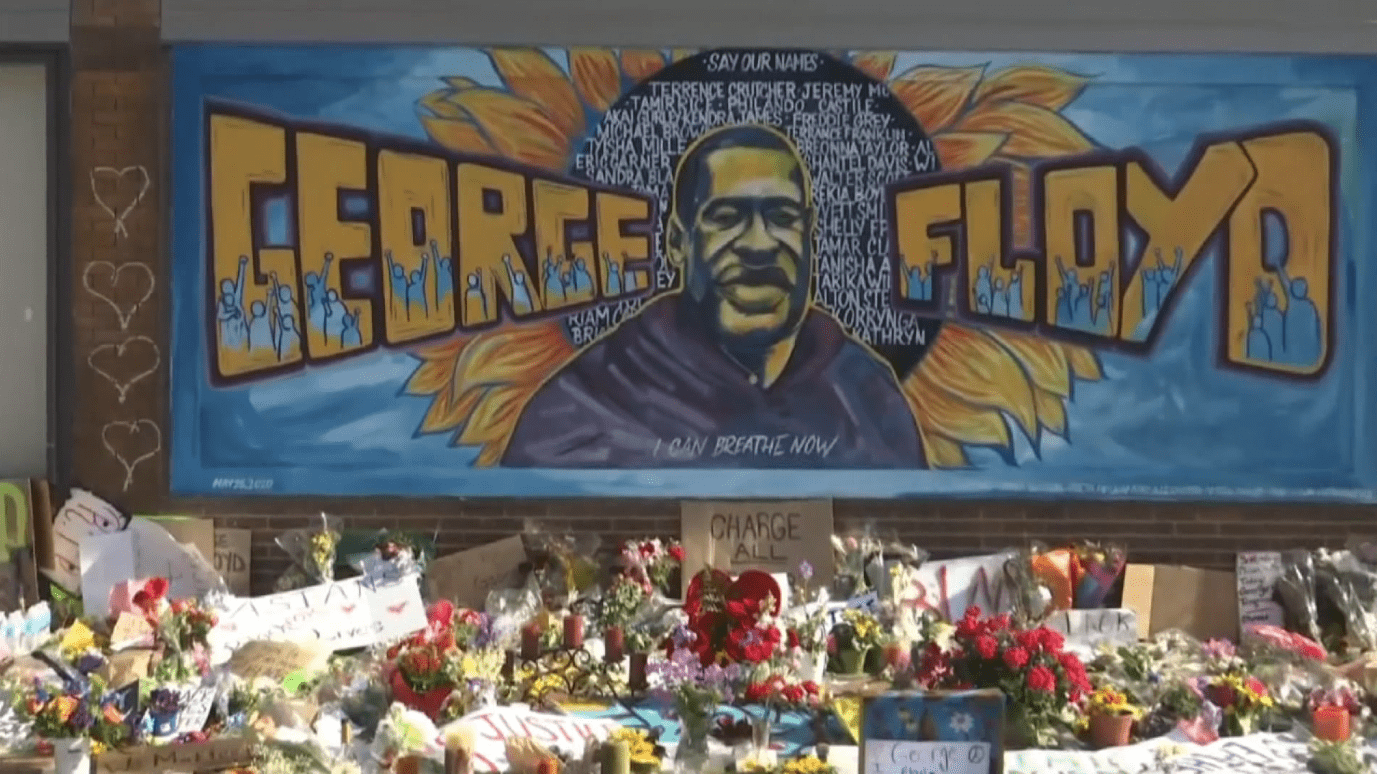Businesses where George Floyd was killed sue Minneapolis, saying police are not protecting the area

George Floyd Mural
MINNEAPOLIS (AP) — Several stores at the location where George Floyd was killed by Minneapolis police in 2020 have sued the city, accusing it of neglecting the area and hurting business.
The lawsuit, filed in mid-November in state court, also names Mayor Jacob Frey and other officials and accuses the city of not properly policing the area since Floyd’s death. It also accuses the city of blocking the intersection that is now known as George Floyd Square with concrete barriers for more than a year after Floyd’s death, keeping customers from entering.
The combination has turned the area into a hub for violent crime, the lawsuit says.
“The mayor, the city, the city council, and the Minneapolis Police Department collectively agreed to severely limit police response in the barricaded area surrounding plaintiffs’ businesses,” with police responding to only the most serious calls and otherwise actively avoiding the area, according to the lawsuit.
“Criminals know the area lacks police protection, and they have now made the area so dangerous that it has become known as the ‘No Go Zone,’” the lawsuit says.
The businesses include Cup Foods, the convenience store where Floyd was suspected of trying to pass a counterfeit $20 bill that led to the fatal encounter with police. The other businesses, including a tobacco shop and investment business, are run from inside Cup Foods or nearby and are all owned by the same family, according to the lawsuit.
The businesses are seeking about $1.5 million in damages.
The city has said it offered a range of support for businesses in response to both the civil unrest that followed Floyd’s killing and the COVID-19 pandemic. That included a $1.5 million forgivable loans program in 2021 specifically for businesses located in and around George Floyd Square.
A spokesman for the city said officials are aware of the lawsuit and have no comment on it.
Frey’s office said in a statement Wednesday that it did “everything possible to open the street safely amid very tenuous circumstances.”
“When we finally did open the street, the city did so in a planned way where no one was hurt and the area remained safe for residents,” Frey spokeswoman Ally Peters said in the statement.
Floyd, who was Black, was killed on May 25, 2020, after former officer Derek Chauvin, who is white, pressed a knee on his neck for 9½ minutes on the street outside Cup Foods. Bystander video captured Floyd’s fading cries of “I can’t breathe.” His death touched off protests worldwide, some of which turned violent, and forced a national reckoning with police brutality and racism.
Three other former officers received lesser state and federal sentences for their roles in Floyd’s death.
One of those former officers, Tou Thao, has asked the U.S. Supreme Court to reverse his federal civil rights conviction. In a petition posted on the high court’s docket this week, Thao’s attorneys argued that prosecutors failed to prove that Thao’s actions or inactions were willful, as required by law.
Thao, who held back the crowd outside Cup Foods, testified previously that he did nothing wrong and served only as a “human traffic cone.” The request is a long shot; the high court last week rejected Chauvin’s request to hear his appeal.
Chauvin is serving a 21-year federal sentence for violating Floyd’s civil rights and a 22½-year state sentence for second-degree murder. Those sentences are being served at the same time. Chauvin is recovering from serious injuries after he was stabbed last week by another inmate at a federal prison in Arizona.
———————-
All contents © copyright 2023 Associated Press. All rights reserved